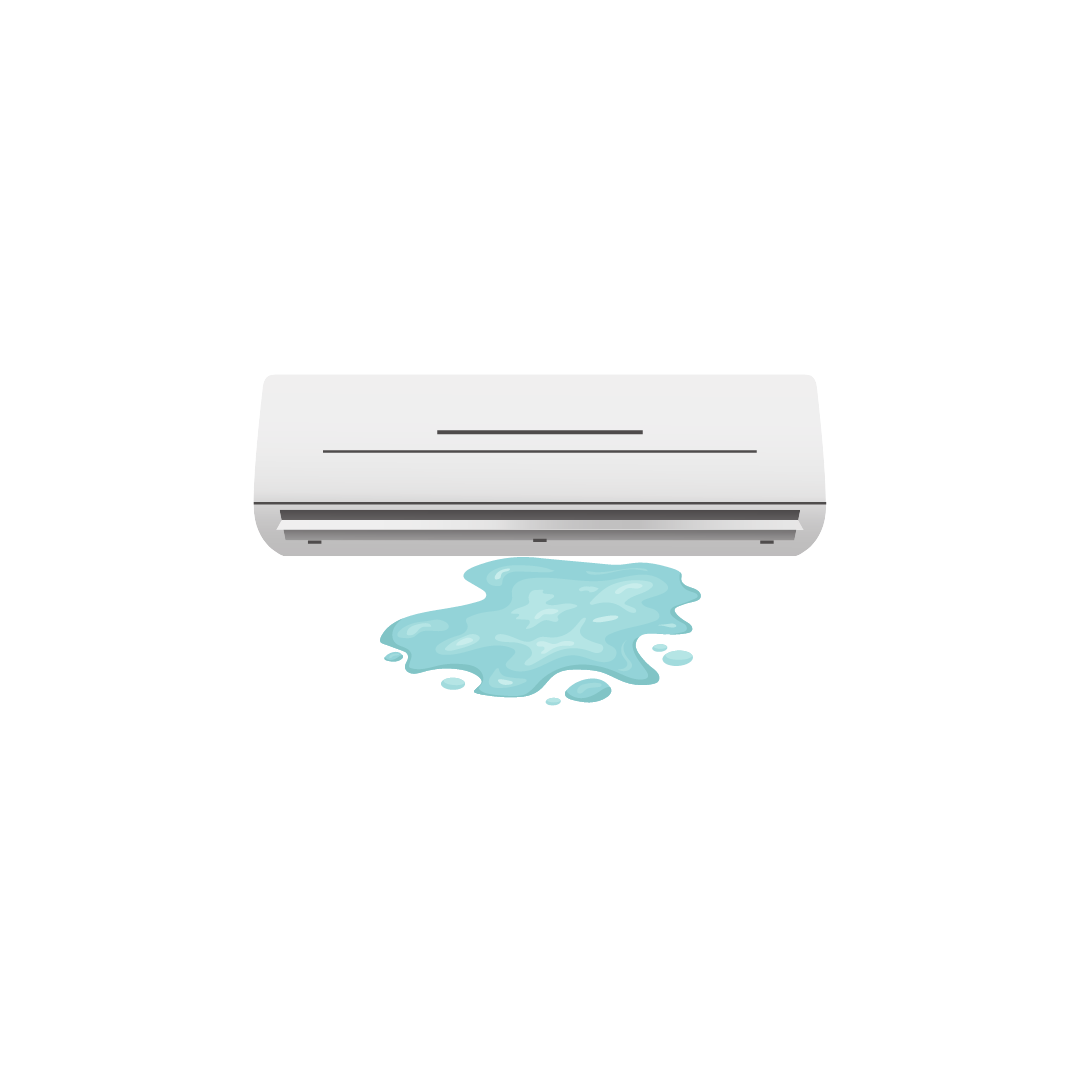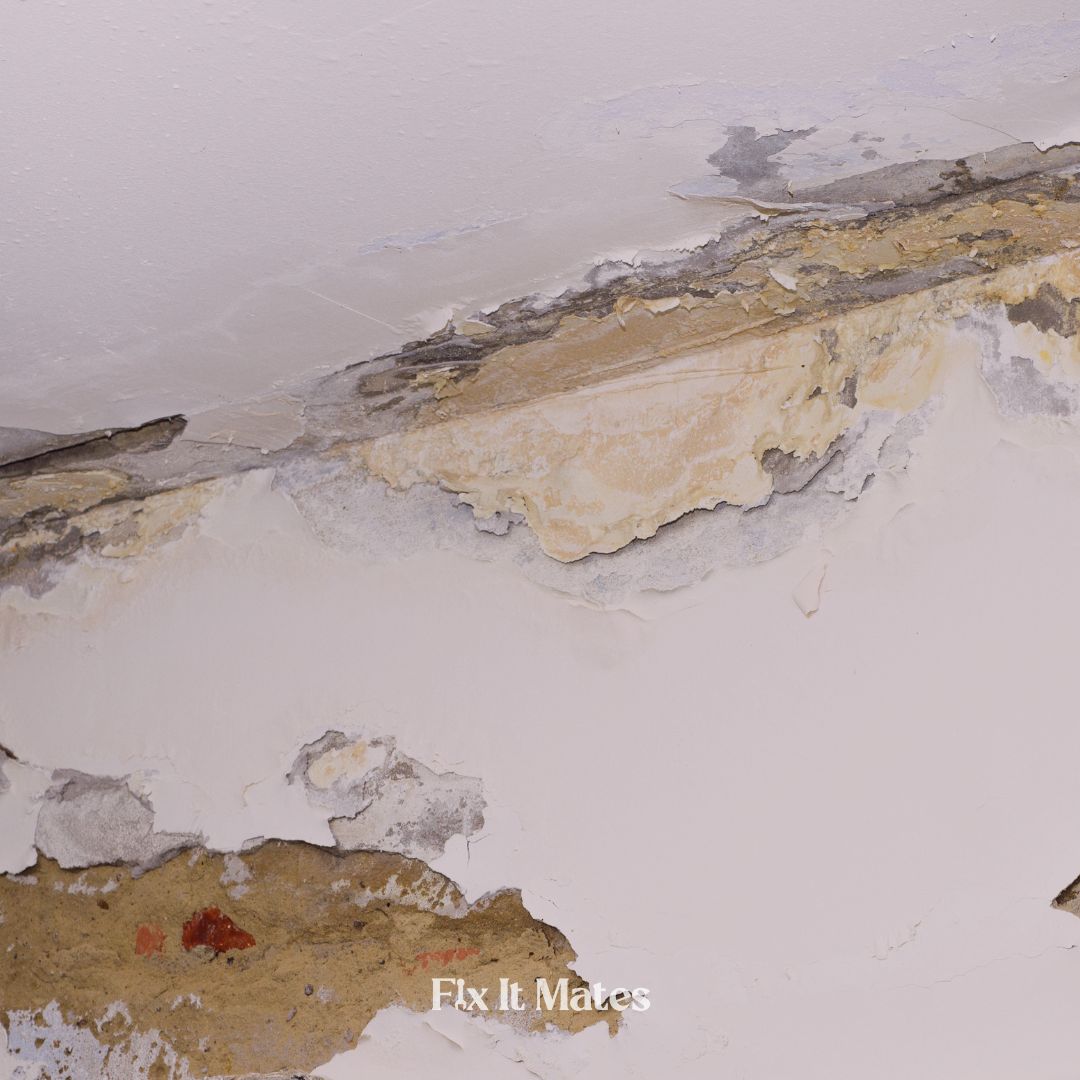


Common Causes of AC Leakage
Clogged Drain Line
Accumulation of dirt, debris, or algae in the drain line can obstruct water flow, leading to overflow and leakage.
Damaged Coils
Corrosion, wear and tear, or physical damage to the evaporator or condenser coils can result in refrigerant leaks and subsequent water leakage.
Refrigerant Leaks
Punctures, cracks, or faulty connections in refrigerant lines can cause refrigerant leaks, leading to water accumulation around the AC unit.
Improper Installation
Poor installation practices, such as incorrect positioning of the AC unit or improper sealing of components, can contribute to leaks over time.
Frozen Evaporator Coil
Restricted airflow, low refrigerant levels, or dirty air filters can cause the evaporator coil to freeze, leading to water leakage once it thaws.
Condensate Pump Failure: Malfunction or failure of the condensate pump, responsible for removing condensation from the AC unit, can result in water backup and leakage.
Blocked Drain Pan:
Accumulation of debris, algae, or mold in the drain pan can obstruct water drainage, causing overflow and leakage.
High Humidity Levels
Excessive humidity indoors can overwhelm the AC system's ability to remove moisture, resulting in water condensation and potential leakage.
Aging Equipment
Wear and tear over time can lead to deterioration of seals, gaskets, and other components, increasing the likelihood of leaks in the AC system.
AC Leakage FAQs
What are the common signs of AC leakage?
Signs of AC leakage include water puddles around the unit, unusual sounds or odors, reduced cooling efficiency, or increased humidity levels indoors.
What causes AC leaks?
AC leaks can be caused by various factors such as clogged drain lines, damaged coils, refrigerant leaks, improper installation, frozen evaporator coils, condensate pump failure, blocked drain pans, high humidity levels, and aging equipment.
Why is it important to repair AC leaks promptly?
Prompt repair of AC leaks is essential to prevent water damage, mold growth, and potential health hazards. It also helps maintain the efficiency and longevity of the AC system, preventing costly repairs in the future.
How do you repair AC leaks?
The repair process for AC leaks depends on the underlying cause. It may involve clearing clogged drain lines, repairing or replacing damaged coils, fixing refrigerant leaks, addressing improper installations, thawing frozen evaporator coils, replacing faulty condensate pumps, or unclogging blocked drain pans.
How much does AC leakage repair cost?
The cost of AC leakage repair can vary depending on the severity of the leak, the extent of damage to the AC system, and the specific repairs needed. It is recommended to schedule a professional inspection to receive an accurate cost estimate for the repair services.
Can AC leakage be prevented?
While some causes of AC leakage may be unavoidable, regular maintenance and preventive measures can help minimize the risk of leaks. This includes routine inspection, cleaning of drain lines and pans, changing air filters, maintaining proper refrigerant levels, and addressing any issues promptly.


